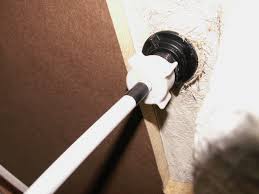How far is too far to move firewood? And what is meant by "local" firewood? When discussing local firewood, I am referring to the closest convenient source of wood that you can find. That might be from down the street, or a state forest in your county. As a general rule of thumb, 50 miles is too far to move firewood, and 10 miles or less is the max firewood should be moved. In many, states there are rules, regulations, and quarantines that clearly state how far is too far. Always acquaint yourself with local rules and regulations when transporting firewood from one jurisdiction to another. Find out more here Don't Move Firewood .
So you buy some firewood from the Ranger's supply at the park and you can burn it during the time you are in the park but you should leave what you do not burn behind.
You have firewood from the local area and you have piled it up in the fire pit and you get ready to light it, but how do you get the green wood, high in moisture content, to burn without dumping a bottle of charcoal starter one it. One fun idea is to use to get the wood burning is InstaFire .
These little fire starter pouches can get a fire going almost anywhere and burn hot enough to get not so great firewood started.
How can you make a campfire fun and exciting? Well, S'mores are fun to make S'mores.
When you are done making the S'mores you might want to be amazed by the camp fire northern light show. Camp Fire Northern Light Show .
Now sit back and enjoy the rest of the evening and watch the light show from your camp fire.
What happens when you can not burn wood but you still want to sit around a campfire. Well, the solution for that is the gas campfire. Most RV camping areas do not have a problem with the gas campfire even if there is a burn ban because the fire does not give off sparks and with the turn of the gas valve, the fire is off. You can still make those S'mores the kids want and you can still enjoy sitting outside of the RV around the campfire. See Portable Gas Campfire for what I am talking about.
This portable gas campfire runs off of LP gas either the little 1lb green cylinders (runs for 2hrs) or the 10lb gas tanks. It runs for hours and the red cover is used for storage and to elevate the gas campfire off the ground. Also, the red cover has the carry handle attached. With an extra accessory, you can even cook on the campfire just like a fire log one.
With any fire outside you need to have a fire extinguisher at the ready just in case. Not just for grass fires. Fire Gone White/Red Fire Extinguisher - 16 oz

Until next time.
Don't forget to join the Weekend RVers group on Facebook a no DRAMA place with Hints, Tips, Free Stuff, Recipes, for every kind of RVer.
And finally, please remember that this blog is an Amazon affiliate. When you order something through any of the Amazon links, it doesn’t add anything to your cost, but I do earn a small commission on everything you buy. Just click on an Amazon link, then shop as usual.
















